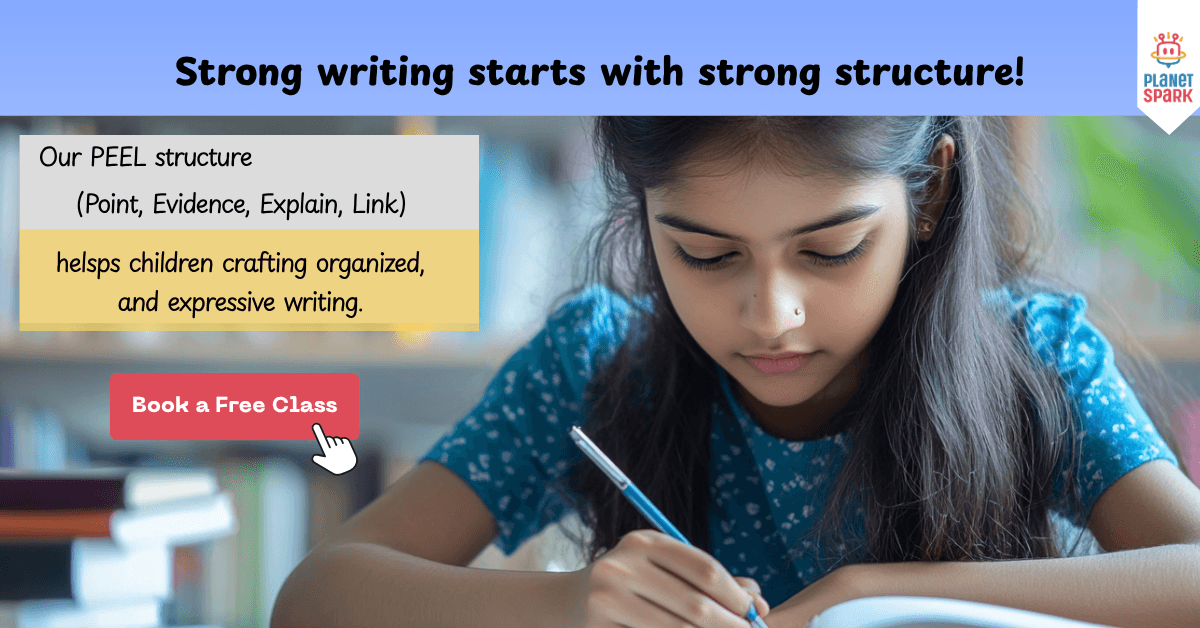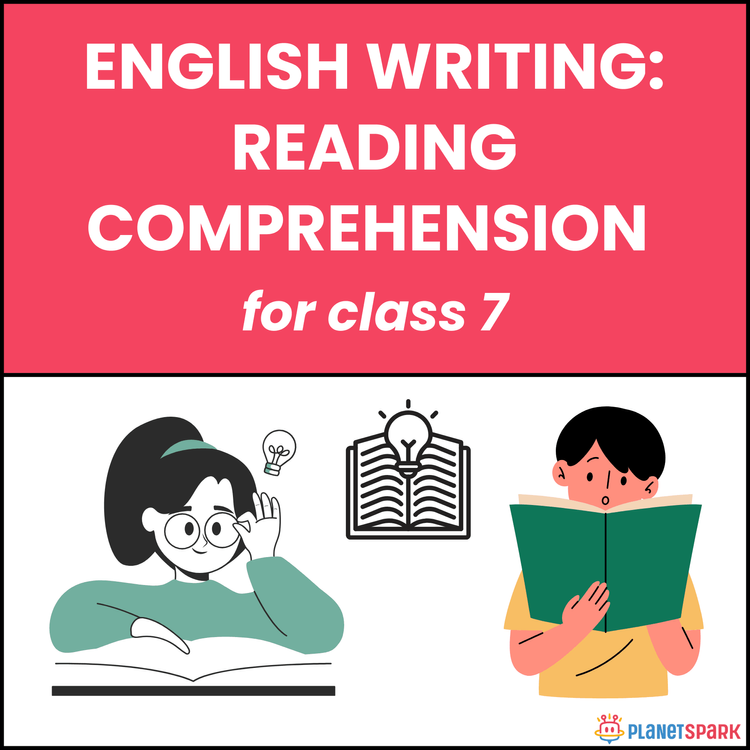Acknowledgement for Project/Assignment – Examples & Writing Tips
Last Updated At: 2 Dec 2025
11 min read

Table of Contents
- What Is an Acknowledgement?
- Structure of an Acknowledgement
- Types of Acknowledgement with Examples
- Acknowledgement Writing Tips for Kids and Students
- Acknowledgement Templates for Students
- Why Is Writing an Acknowledgement Important?
- Common Mistakes to Avoid in Acknowledgements
- Why Acknowledgement Writing Is a Creative Skill
- How PlanetSpark Makes Acknowledgement Writing Fun and Skill-
- Conclusion
- FAQs on How to Write Acknowledgement
Whether you are a student preparing your first school project or a budding writer completing your manuscript, knowing how to write acknowledgement is an essential skill. Acknowledgements are more than just a thank-you note they’re an opportunity to express gratitude with clarity, professionalism, and a personal touch.
In this blog, we’ll explore how PlanetSpark helps students write acknowledgements with clarity, sincerity, and personal voice, key skills built through an expert-led Creative Writing program.
What Is an Acknowledgement?
An acknowledgement is a short written section in a project, book, thesis, or report where the writer thanks individuals or organizations who contributed to the work. It could include teachers, mentors, family, friends, institutions, or sponsors.
Forms of Acknowledgements:
School Projects: Typically acknowledge teachers, classmates, and parents.
Books or Creative Works: Thank editors, beta readers, illustrators, etc.
Research Papers or Theses: Mention supervisors, funding bodies, and collaborators.

Structure of an Acknowledgement
Here’s a basic template to understand how to write acknowledgement effectively:
Start with a General Thank You: Begin with a broad expression of gratitude.
Example: “I would like to express my sincere thanks to all those who helped me complete this project successfully.”
Mention Specific Individuals or Groups: List people and their contributions clearly.
Example: “I’m deeply grateful to my English teacher, Mrs. Sharma, for her guidance and support throughout the writing process.”
Acknowledge Emotional or Moral Support: It’s okay to mention your parents, friends, or others who motivated you.
Example: “Special thanks to my parents for their encouragement and belief in me.”
End with a Concluding Note: Close it with a sentence of final appreciation.
Example: “This project wouldn’t have been possible without all the guidance and support I received. Thank you!”
Types of Acknowledgement with Examples
1. Acknowledgement for School Project
I would like to express my heartfelt thanks to my class teacher, Ms. Kavita, for guiding me through this project. I also thank my parents for their support, and my friends for helping me gather resources. Their cooperation made this task a success.
2. Acknowledgement in a Creative Writing Booklet
I am grateful to my writing mentor at PlanetSpark, who taught me how to express my thoughts clearly and creatively. Thanks also to my parents who motivated me to keep writing, even when I felt stuck. Finally, a big thanks to my fellow writing buddies who read my drafts with patience and care.
3. Acknowledgement for a Research Report
I sincerely thank my research supervisor, Dr. R. Gupta, for his insightful feedback and guidance. I also appreciate the support from my school library staff for granting access to valuable resources. My heartfelt thanks to my parents for their emotional support during the long research period.
4. Funny or Creative Acknowledgement (For Advanced Writers)
Thanks to coffee, midnight playlists, and my curious cat for being my loyal companions during my writing sprints. To my little brother who barged in with questions just when I had the perfect sentence thank you for keeping things real!
Turn Thoughts Into Powerful Words
Writing is more than grammar, it's about expressing feelings and ideas clearly. With PlanetSpark’s expert mentors, your child will learn how to write with emotion, structure, and style.
Start with a free demo class today!
Acknowledgement Writing Tips for Kids and Students
If you're a young learner wondering how to write acknowledgement in your school notebook or digital document, follow these practical tips to master writing:
- Keep it Simple and Sincere: Avoid using flowery language. Just be honest and polite.
- Spell Names Correctly: Double-check the names and titles of teachers, friends, or mentors.
- Don’t Make It Too Long: Stick to 80–120 words unless instructed otherwise.
- Use Paragraph Format: Write in small paragraphs instead of one long block of text.
- Show Gratitude, Not Flattery: Say “thank you” but don’t overdo the praise.
Acknowledgement Templates for Students
Here are a few templates you can use and customize:
1. Acknowledgement Sample for School Project (Class 5–10)
I would like to express my sincere gratitude to my class teacher, Mrs. Kavita Sharma, for her valuable guidance and encouragement during this project. I am also thankful to my parents for their constant support and to my classmates who helped me with suggestions and feedback. Their contributions made this project successful.
2. Acknowledgement Sample for Creative Writing Assignment
I am extremely thankful to my mentor for guiding me on how to structure and express my ideas effectively. A special thanks to my parents for motivating me to think creatively and revise my drafts patiently. Their encouragement helped me complete this story with confidence.
3. Acknowledgement Sample for Research Paper or Thesis (Senior School/College)
I would like to extend my heartfelt gratitude to my research supervisor, Dr. Arvind Rao, for his expert advice, valuable insights, and unwavering support throughout the project. I also thank my school library and lab staff for providing the resources I needed. Last but not least, I appreciate my family’s emotional support during this journey.
4. Acknowledgement Sample for a Short Story Collection or Book
I wish to thank my creative writing coach for helping me develop compelling characters and engaging plots. Thanks to my editor for their thoughtful feedback, and to my friends for being my first readers. Most of all, I thank my family for believing in my writing from the start.
5. Acknowledgement for Public Speaking Event or Contest
I would like to thank my public speaking mentor, who helped me practice, refine, and deliver my speech with confidence. A huge thanks to my parents for cheering me on and my peers for their constructive feedback during practice rounds.
6. Funny & Creative Acknowledgement for Personal Projects
Big thanks to my PlanetSpark coach who taught me how to organize my thoughts, my cat who sat on my notes (forcing me to memorize them), and my mom who gave me cookies during my writing breaks. Without this unusual team, this project would never have been fun!
7. Acknowledgement for Group Project (Collaborative Work)
Our group would like to thank Mr. Anil Mathur, our science teacher, for guiding us throughout this project. We also appreciate the cooperation and hard work of all team members, especially during brainstorming and research. Thanks to our families for their encouragement.
8. Short and Formal Acknowledgement (Under 50 Words)
I would like to sincerely thank my teacher, parents, and peers who supported me during the preparation of this project. Their help and guidance were invaluable.
Why Is Writing an Acknowledgement Important?
Writing an acknowledgement is not just a formality it’s a reflection of gratitude, maturity, and awareness. Here’s why it matters:
Shows appreciation for those who helped.
Adds a personal tone to an otherwise formal document.
Establishes credibility, especially in academic writing.
Practices empathy and acknowledgment skills vital to creative and emotional intelligence.
At PlanetSpark, we consider this an essential milestone in our Creative Writing and Personality Development modules because expressing gratitude is also a creative act.
From acknowledgements to award speeches help your child find their voice and write it right with our expert-led writing classes.
Book a free demo classs with just one click!
Common Mistakes to Avoid in Acknowledgements
Here are a few things you should not do while writing acknowledgements:
| Mistake | Why It's a Problem |
|---|---|
| Being Too Vague | “Thanks to everyone” lacks meaning. Be specific. |
| Over-Thanking | Mentioning every person from your school is unnecessary. |
| Using Informal Slang | Avoid words like “cool” or “awesome” unless it fits the tone. |
| Forgetting Key People | Missing out on someone important (like your teacher) shows carelessness. |
| Not Proofreading | A misspelled name in an acknowledgement is embarrassing. |
Why Acknowledgement Writing Is a Creative Skill
At first glance, writing an acknowledgement may seem like a simple thank-you note. However, it requires much more than listing names. Acknowledgement writing is a creative skill because it involves thoughtful expression, emotional intelligence, and structured communication.
To write a meaningful acknowledgement, one must reflect on who contributed to the work and how their support made a difference. This process of identifying contributors, recalling specific moments, and articulating gratitude demands creativity. It also involves making choices about tone, language, and sequence balancing formality with a personal voice.
Furthermore, crafting an acknowledgement encourages the writer to communicate appreciation sincerely and originally, rather than relying on clichés. This means thinking creatively about how to phrase thanks in a way that feels heartfelt and unique.
In essence, writing acknowledgements sharpens skills like clarity, empathy, narrative awareness, and stylistic variety all hallmarks of strong creative writing.
Here’s How Our Creative Writing Program Helps:
Genre-Based Curriculum: We teach kids how to write essays, stories, poems, and acknowledgements with clarity and style.
Storytelling Elements: Even acknowledgements can use “mini-stories” of help received.
Peer Feedback and Revision: Children review each other’s writing and learn how to fine-tune their tone.
Real Publishing Opportunities: Our students get to write their own books and thank their readers or families through personal acknowledgements.
Book a FREE Creative Writing Trial at PlanetSpark Now & see the difference yourself!
How PlanetSpark Makes Acknowledgement Writing Fun and Skill-Building
PlanetSpark's Creative Writing Course is designed to nurture writing skills in a structured, engaging, and results-driven manner.
What Makes Us Unique?
Framework-Driven Writing Instruction
Kids learn how to write clearly using tools like STORY arc, PEEL, and 5W1H techniques.
Real-Time Editing and Feedback
Students get feedback on everything including acknowledgements so they can revise and polish like pros.
Writing + Speaking Integration
Kids present their written pieces to their peers, building public speaking confidence.
Publishing Opportunities
Whether it’s a blog, newsletter, or anthology our kids get published and celebrated!

Conclusion
Learning how to write acknowledgement may seem like a small part of a larger writing task, but it’s a meaningful opportunity to show appreciation. It teaches kids empathy, structure, and professionalism all core values at PlanetSpark.
So whether it’s for a science project or a heartfelt poem, teach your child how to say “thank you” the right way with clarity, structure, and heart.
FAQs on How to Write Acknowledgement
Q. How long should an acknowledgement be for a school project or assignment?
A. For most school projects or class assignments, an acknowledgement should be between 80 to 150 words. This length is enough to express genuine gratitude without going into unnecessary detail. If it’s part of a larger written document, such as a research report or creative story compilation, it can be a little longer (up to 200–250 words). The key is to be concise, respectful, and specific in your thanks.
Q. Can I thank my family and friends in a formal acknowledgement?
A. Yes, you absolutely can and should thank family and friends, especially if they supported you emotionally, helped with research, or encouraged you to complete your work. However, the tone should remain polite and respectful.
Q. What kind of tone should I use while writing an acknowledgement?
A. The tone of an acknowledgement should be formal, appreciative, and sincere. Avoid using overly casual language like “cool,” “awesome,” or “shoutout.” Use phrases like “I am sincerely thankful to…” or “I would like to express my gratitude to…” for a more polished effect.
Q. Is it okay to use humor in acknowledgements?
A. In academic or formal settings like school assignments or research papers humor should be avoided. However, if you're writing a creative storybook, blog, or informal piece (such as a comic or personal essay), mild humor can make acknowledgements more memorable and personal.
Q. Do acknowledgements have to follow a specific order?
A. There is no strict rule, but it’s best to follow this logical order:
Start with formal acknowledgements (teachers, mentors, supervisors).
Then mention informal supporters (family, friends).
End with a final thank-you note.
Q. How does PlanetSpark help children improve their acknowledgement writing?
A. PlanetSpark’s Creative Writing Curriculum includes:
Genre-based writing: Essays, poems, stories, and acknowledgements.
Writing frameworks: Kids learn to organize thoughts clearly and thank the right people meaningfully.
Feedback and editing: Coaches guide kids to refine their tone, grammar, and structure.
Publishing practice: Students publish their work and learn how to write polished acknowledgements, just like real authors.
Our aim is to help kids write with clarity, creativity, and confidence, even in small sections like acknowledgements.
Download Free Worksheets
Personalized Communication Report
Record a video to get a AI generated personalized communication report for your child
Select Learner's Class

Hi There, want to try these
tips for your child with
LIVE with our expert coach?
Let's check your child's
English fluency

